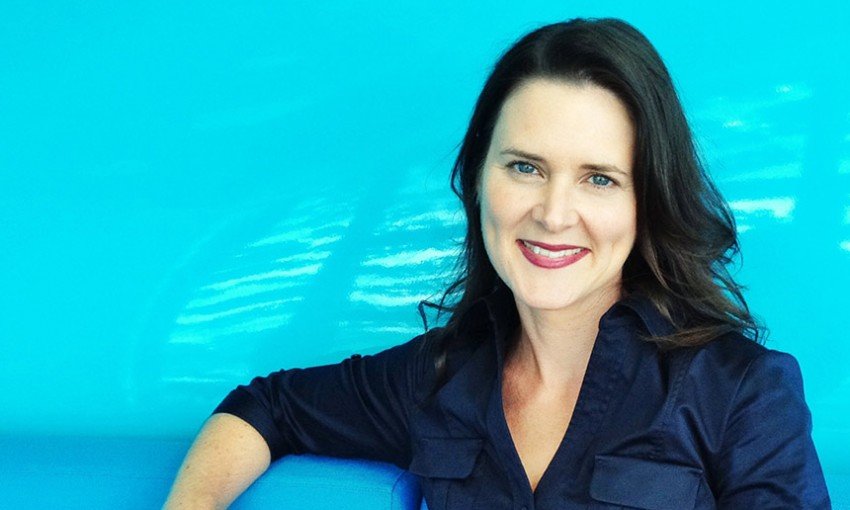
What worries you the most about technology?
That we don’t have the diversity of people involved in the technology industry to solve actual world problems.
What excites you the most?
That through technology we have the opportunity to democratise success. Traditionally, opportunities have been limited to people who had enough money, the right connections or were involved in big business. Now, technology and the internet is providing equal access and opportunities for people to learn, start a business, share information and ideas, and get access to the tools they need to succeed in whatever endeavor they choose.
What’s your scariest prediction for the future?
That the tech agenda will focus on solving the wrong problems because we don’t have diversity of people and thought at all levels.
At the moment, the industry is looking at how fast driverless cars can go and robotics – is this really the biggest problem we have in the world?
I would hate to think that we end up in a situation where a small group of individuals who currently dominate technology, get more power because others are unable to join or aren’t let in to the community.
If you could go back in time, what’s one technology advancement you would rave about to your great grandparents?
Video calls – they allow you to build and maintain relationships remotely. I can be over the other side of the world and still read my daughter a bedside story. Video calls are the happy joining of human and technology
What do you think New Zealand will look like as a country in 2038?
I’m not sure what it will look like, but what I wish for is for New Zealand to have the most digitally literate population and children in the world. That we have a strong and diverse population participating in technology and that we lead the way globally as an example of a community where big problems like poverty, access to education and safety are tackled and exported to world. Ultimately leading to the increased health, wealth and happiness of our people.
I also think we’ll see a major rethink about privacy. Online concierges and personal clouds will evolve so we aren’t littering our personal data through the internet. Companies may have to think more about demand-driven economics where they are dealing via an online concierge where they have to bid with other companies to win a sale, rather than the consumer spending their valuable time searching the right options and online companies leveraging this to their benefit. Look out Google!
What’s your social media usage like?
For me, Facebook is losing its relevance. Although in saying that, my use of the Messenger app is going up. Other than that, I user Instagram for sharing moments and then Twitter and LinkedIn for business.
Do you try limit how much personal information is available about you online?
I protect details around things that could identify my family and I’m conscious of how much I share as it relates to the social media platform.
What will be dead in the next five years? (Products, companies, trends, etc)
I think we will see the decline of Facebook and Apple because in my eyes they have lost focus of the most important thing when producing beautiful tech – which is solving actual problems for their customers, and driving everyday to support their purpose.
I also think we’ll see the darwinism of tech – it’s going to be about survival of the fittest as the tech market continues to consolidate and we see the continued rise of platforms that support the shared economy.
What does your ideal robot look like?
If we are talking about a physical robot to say, help around the house, then as invisible as possible and definitely not human like. I’m not a fan of robots with human features and expressions.
That’s not to be confused with AI, chatbots and ‘artificial humans’ as Soul Machines refer to them. They have the potential to solve so many problems across health, business, media and financial services – bringing the best of AI and tech with a human interface.
Will the robots become sentient and kill us all?
No – no doubt it will be the instructions humans give that may end in catastrophe rather than a robot uprising.
How likely is it that we’re living in a simulation?
Not a chance.
How far should we take human enhancement? (Bionic limbs, computer chips in brains, designer babies)
Anything that helps humans to be more human is a good thing. It’s when we start to use technology as a crutch for humanity that we get into difficulties.
How would you feel about interacting with a chatbot fuelled by a deceased loved one’s texts and social media posts?
Personally I would find it really upsetting but I wouldn’t ever judge if that gives someone comfort.
What about being a part of a social credit system, Black Mirror style?
At the end of the day, we each have to take responsibility for being on this earth and treating each other well. Part of this is being vulnerable and having the compassion to support people – whether it’s good, bad or ugly.
The moment you try and take an algorithm to measure someone means that it becomes a manufactured humanity. It would be humans at our worst if we took it to that level.

Want to make a change in 2018?
Accelerate your career, launch a new product, service or business and grow your knowledge to prepare for this technology powered age.
Check out our Tech Futures Lab, one-year Master’s designed to help you find your innovation future!
APPLY NOW: https://www.techfutureslab.com/master-degree




